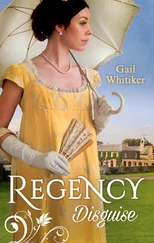She opened her eyes. He stood sideways in the candlelight with fresh clothes piled atop the dresser. He undid the two buttons at his collar, then reached down and pulled the bottom of his shirt up.
She slammed her eyelids shut and turned her head away. She’d no business seeing this man bare of chest, especially not when she needed to focus on getting to England.
Chapter Five
The miserable wall. All it did was sprout holes.
Despite the chill in the air the following morn, a bead of sweat trickled between Michel’s shoulder blades. He hefted another sandbag from the wagon onto his shoulder and trudged to the weak spot in the makeshift dam.
Miserable wall. Miserable field. Miserable sow. Miserable life.
Twenty meters from where he walked, a stream glittered in the sunlight, and two large ash trees on the bank cast shadows over the water. It probably looked picturesque—to someone who didn’t know any better.
Nature’s deception at its best. One good rain and that creek would flood its borders—and his field. The ground rose on the other side of the stream, forming a gentle hill and Gerard Bertrand’s property. But Bertrand didn’t need to dam up his fields.
Nature did that for him.
If ever a field should revert back to forest and wetlands, this cursed lower parcel was it. After a few hours of rain from the day before, the ground transformed into a heap of mud that needed draining, not planting. And the creek had yet to flood, as it did every spring.
And every second summer.
And every third fall.
He set the sack into position on the wall and headed back to the horse and wagon for another. The farmwork, day in and day out, would rob a man of his strength. Take and suck and slurp until nothing was left. Then in the end, after the land stripped away a man’s muscle and mind and endurance, it took his heart.
It had stolen his father’s. In this very field. One moment the man had been plowing while Michel built up the dam, and the next moment Père fell to the ground behind the plow, his hands clutching his heart, his face a deathly gray. Michel had rushed to his side, just in time to promise Père he would take care of his mother and the farm.
His throat burned with the memory. How much of Père’s death was his fault? He’d been the one to leave the family and go off to Paris with dreams of making furniture. After a year of being denied an apprenticeship by every prominent furniture-maker in Paris, he’d returned home, his savings depleted, his dreams crushed, to find his father nearly dead from taking on the extra work.
He wiped his brow with the back of his sleeve. Pursuing his dream cost Père’s life. He wouldn’t make that mistake again.
The wood might call to him and make him long to be in the shop, letting his hands run over silken lumber, carving that last strip on the dresser, joining the tabletop.
But God had given him this land. And like Père, he would take care of it until it killed him.
He should have been the second-born son. God and Père both would have been better off giving the land to his brother. Farming flowed through Jean Paul’s blood the way woodworking did through his. Jean Paul could get a field to sprout just by looking at it, or so it seemed. The man never scowled when planting time rolled around and wore a grin on his face throughout the long, toilsome days of harvest.
Michel looked out over the fields. Where was his brother? Jean Paul should have returned by now. Mère and the rest of the town thought Jean Paul had been living in Paris these past six years, making furniture for the wealthy. But it wasn’t true. The master craftsmen furniture-makers wouldn’t let anyone new into their ranks. So when someone asked about his brother, Michel smiled and said Jean Paul was doing well. He wasn’t lying so much as he didn’t have anything different to tell people. In his letters, Jean Paul appeared to be doing well.
Grunting, Michel lifted another sandbag off his shoulders and swung it into place. It burst, spraying loose sand and dirt over his wall.
He kicked the barrier. The force reverberated up his leg, and sand spurted from another sack. Just what he deserved for giving in to his anger, but he didn’t much care. He’d a right to get worked up over the field, didn’t he? All it did was drain the life from him.
He snatched the ripped bag and trudged back to the wagon. The mud sucked at his boots, making each step a deliberate battle.
The earth smelled of moist dirt after yesterday’s rain. A scent he appreciated—when he hadn’t spent three hours traipsing around in search of a pig during the downpour, only to return without her. He glared across the stream to his neighbor’s land. The greedy man must have found the beast.
At least the girl had been asleep when he returned last night, so he hadn’t needed to deal with her.
At the thump of approaching horse hoofs, he turned toward the rise at the edge of the field. Two horses crested the little hill. The mayor undeniably sat atop the first steed, for no one in town carried as wide a girth as Mayor Victor Narcise. On a mule about half the size of Narcise’s horse sat Father Albert. A burning sensation of guilt crept across Michel’s chest at the sight of the wiry, sunken former priest. Ordinarily, he’d welcome a visit from the mayor, one of Père’s closest friends, and the father, his former schoolteacher. But the girl changed things.
Not just things, everything.
The mayor, sitting atop his magnificent mount and wheezing heavily from the exertion of reining in the beast, reached Michel several paces ahead of Father Albert. “Your mère said that your père was down here.”
They talked with Mère? Michel stilled, the hair on the back of his neck rising. What if she’d mentioned the girl?
“But since your père’s dead, I assumed she meant you’d be the one working the field.”
No talk of the girl. Michel blew out a shaky breath.
The mayor smoothed a gloved hand over the thinning gray hair that stuck out from beneath his hat. “I thought your mère knew—”
“She does. Some days.” Michel shifted his weight. He need not discuss Mère’s condition with the mayor. Half the town already thought she belonged in a lunatic hospital. “When she woke this morn, she remembered Mon Père was dead.”
Narcise hitched a thumb in the waistband of his breeches and watched him. Beside Narcise, Father Albert nodded, his eyes brimming with compassion. The same compassion he would no doubt have for the girl, despite her sharp tongue. Michel glanced nervously in the direction of the house. He worried not what Father Albert would do if the girl were discovered, but Narcise’s reaction would be a different matter.
Michel rubbed the back of his neck. Surely Father Albert had helped aristocrats escape France. Though the good father had lost everything—his church, his rectory, his income—when the Convention declared an end to Christianity last fall, he still went about the countryside helping widows and orphans, much like he’d always done. Oui, with Father Albert, Michel need not question whether he’d helped aristocrats, but how many.
Father Albert clutched his bony hands atop his lap. “’Tis a good thing you’re doing by looking after your mother, Michel. The Lord shall reward you.”
Michel couldn’t meet the father’s eyes. He’d probably canceled any reward for helping Mère after how he’d treated the girl. Father Albert should have been the one to find her. He wouldn’t forget to offer food or water, nor demand she say thank-you.
“Sometimes the Lord gives special opportunities to serve Him,” Father Albert continued. “Do not consider it a burden, son, but a chance to show God’s love.”
The blood left Michel’s face and pooled in his toes. Mère. Father Albert was talking about Mère. He couldn’t know about the girl.
Читать дальше












